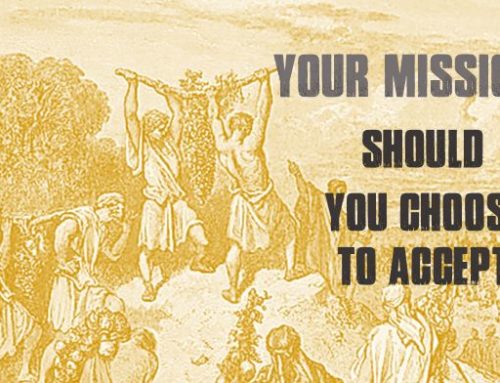Torah Portion Beha’alotchah, Numbers 8.1—12.16, Haftarah, Zechariah 2:14 – 4:7
Our Torah portion Beha’alotcha (when you lift up) has many worthy subjects for discussion. The title comes from the priests ascending to light the menorah lamps. (Numbers 8.2) However, this Torah portion also used the verb for “lifting up” to describe the lifting of the glory cloud from above the Tabernacle. (Num.9.17) Amid describing how God’s presence lifted, and the Levitical preparations to move the ark, a powerful side note was added.
So it was, whenever the ark set out, that Moses said:
“Rise up, O Lord!
Let Your enemies be scattered,
And let those who hate You flee before You.”And when it rested, he said:
“Return, O Lord,
To the many thousands of Israel.” Numbers 10. 35-36 NKJV
Moses’ blessing and prayer of return captured my attention. I soon discovered that I was not alone in sensing the significance of these two verses. Since ancient times, a scribal note has separated Num. 10.35-36, before and after, from the rest of the text by an inverted Hebrew letter nun. Like a parenthetical citation, this prayer is set apart from the text. One ancient commentator, Yehudah HaNasi, taught that those two verses between inverted scribal nuns constitute an entire book. Another Rabbi, Shimon Ben Gamaliel, believed this portion will be removed in the future to its proper place.[1] (Bab. T. Shabbat 116a)
A Traveling Prayer

Hebrew segment separated by the inverted nuns. Numbers 8.35-36.
This segment is clearly special. Some have even described it as a “traveler’s prayer”. I like that. We make it a practice to say a prayer before and after our journeys. I believe Moses’ “journey prayer” will be a prophetic word of encouragement for many hearing this teaching or reading these words. Why do I say this? Perhaps you are already sensing that the spiritual atmosphere is changing. Like Israel in their wandering, witnessing the glory of the Lord lift from the tabernacle, you sense a signaling that the time to journey forward has come. No doubt Israel felt both excitement and apprehension in those moves, yet Moses’ prayer was a strength for the myriads of Israel and for us today. And so for the next few moments, I want to incorporate Moses’ two prayers as our prayer in the midst of transition.
I. Rise Up O Lord
“Rise up, O Lord! Let Your enemies be scattered, And let those who hate You flee before You.” Num. 10.35 NKJV
The Ark, containing the Commandments was inseparable from the presence of Jehovah. As the cloud lifted, the Levites prepared to raise the Ark. I can imagine the powerful scene as Moses prayed, “Arise O Lord”. Moses and the Levites became participants in the rising up. What God initiated, had to be acted upon. Many of you have experienced this firsthand, in response to the moving of the Holy Spirit in your life. Though some may have feared, they arose knowing God went before them. The Levitical clan, the Kohathites, carried the Ark as advance party. Can you imagine a scenario where the cloud lifted but the people refused to move? Though this did not happen for Moses, it has happened to many others in history. Advancement takes faith.
Moses prayed this prayer of faith having many times experienced the Lord’s faithfulness. Long before building the Ark, God’s pillar of fire and covering cloud had guided Israel to the shores of the mighty Red Sea. There, the Lord “arose”, scattering His enemies. But have you ever thought, whose foot leapt by faith first into the water? Tradition records that Nahshon ben Aminadab was that man of faith. A name only mentioned a few times in Scripture. In Jewish culture, the expression “Nahshon’s leap” is synonymous with courageous faith. That first person of faith could step forward knowing that God was before him.
May Your Enemies be Scattered
Israel’s enemies are God’s enemies. Those who bless Israel are blessed of the Lord. Israel could journey into the unknown desert because God prepared the way. Did they know where to camp in the desert? Moses admitted that he did not know this desert well. He even persuaded his brother-in-law Hobab son of Reuel to journey with them precisely because he knew that desert.
“So Moses said, “Please do not leave, inasmuch as you know how we are to camp in the wilderness, and you can be our eyes.” Num. 10.31 NKJV
Ultimately, God was leading this nation! I can just imagine as Hobab might have said, “Moses, this is a good place to camp”, yet as Moses looked heavenward, he could see the “pillar of fire” continuing on.
Recently I went walking with my wife and our little dog in a forest valley in the foothills of Judea. Seeing an interesting goat trail up the hillside, I told my wife to wait as I checked the trail first. Along the way I saw a fox scatter away just feet in front of me. How often has the enemy scattered before the presence of the Lord while we were unaware? The enemy flees from the presence of the Lord, but there is a great danger to the person who gets ahead of God.
II. Return, O Lord
“And when it rested, he said: “Return, O Lord, To the many thousands of Israel.” Num. 10.36 NKJV
I wish that you could hear the two parts of Moses’ journey prayer in Hebrew, the rhyme of the words, the concise conservation of words, and the power expressed, “Return Oh Lord, to the myriads, the thousands of Israel”.
וַיְהִי בִּנְסֹעַ הָאָרֹן וַיֹּאמֶר מֹשֶׁה קוּמָה יְהוָה וְיָפֻצוּ אֹיְבֶיךָ וְיָנֻסוּ מְשַׂנְאֶיךָ מִפָּנֶיךָ׃ וּבְנֻחֹה יֹאמַר שׁוּבָה יְהוָה רִבְבוֹת אַלְפֵי יִשְׂרָאֵל׃ (׆)
God desires to dwell in the midst of His people. As Israel camped around the presence, so we must encamp around His presence.
There is a place of rest in God. We can only appreciate the resting presence after we have truly been on a spiritual journey. Again, some hearing or reading these words may be at the start, middle or end of a journey. If God is moving you forward, know by faith that the divine presence will again settle you in green pastures, by the still waters, to restore your soul. This word for resting the ark, is the same used to describe Noah’s ark coming to rest upon one of the mountains of Ararat. It means setting in place once again. In fact, this same prayer is spoken when the Torah scroll is returned to the Torah ark.
A Prayer of Faith
By Faith Moses could speak of the myriads, and thousands of Israel because he trusted the Lord to preserve the people on their journey, and you can trust the Lord on your journey as well.
Conclusion
In this life, there are seasons when circumstances which force us to move. The Lord may well be within those circumstances to bring you to a new resting place. Moses stretched out his hands bidding the presence of God “arise” because he knew the faithfulness of the One who called him. Do you know that faithfulness? Ultimately, Moses’ prayer was one of prophetic blessing. He trusted the journey to culminate once again with the cloud’s return to rest upon the myriad thousands of Israel. Zechariah the prophet foresaw this return as a future restoration for Israel.
“Return to Me,” says the Lord of hosts, “and I will return to you…” Zechariah 1.3 NKJV
Yes, the ancient exegete, Shimon son of Gamliel, believed this prayer was set between the inverted nuns as a hope. One day this portion would be moved to its rightful place. He longed for the day when the Glory would return to Jerusalem, rest upon the people, as a covering over the Holy city.
As you sense a new direction, may this prayer become your prayer. May the confidence of this prayer be your confidence. His call to step out is your cue to stretch forth your hands and proclaim this “traveling prayer” over your life. And may the God who rested over Israel bring you to your season of rest as well.
Shavua Tov from Zion
[1] “The Inverted Nuns of Numbers 10:35-6.” Sefaria. Accessed June 14, 2021. https://www.sefaria.org.il/sheets/118991?lang=bi.




